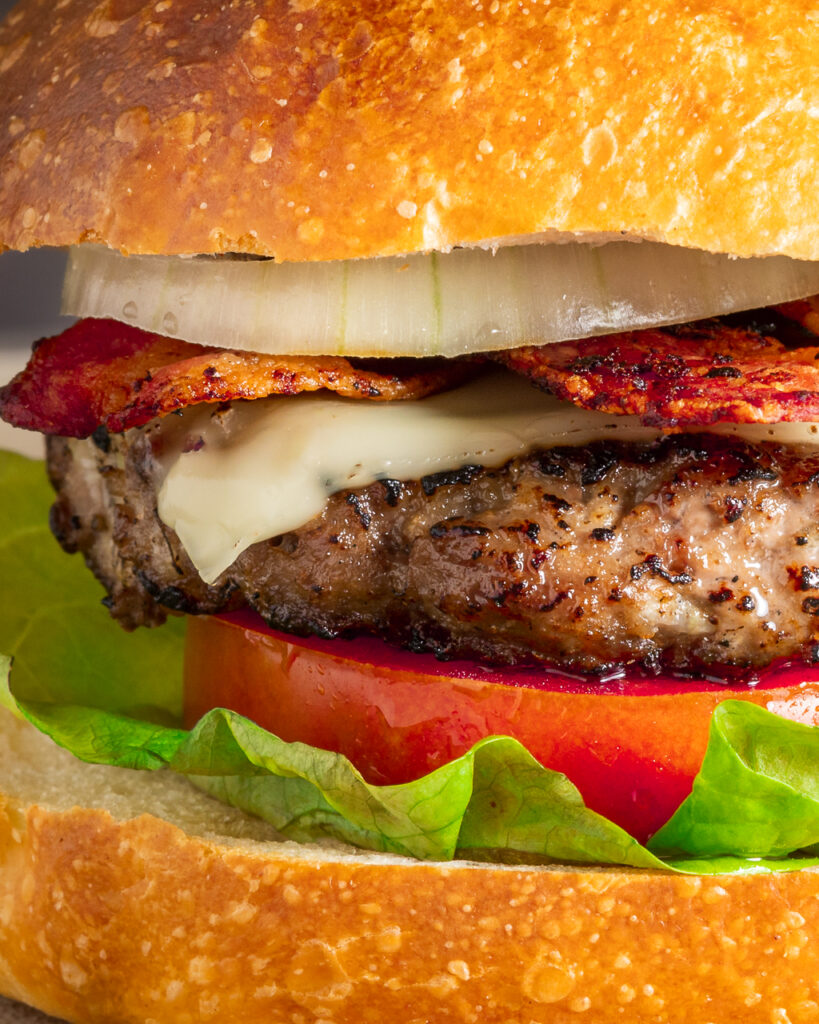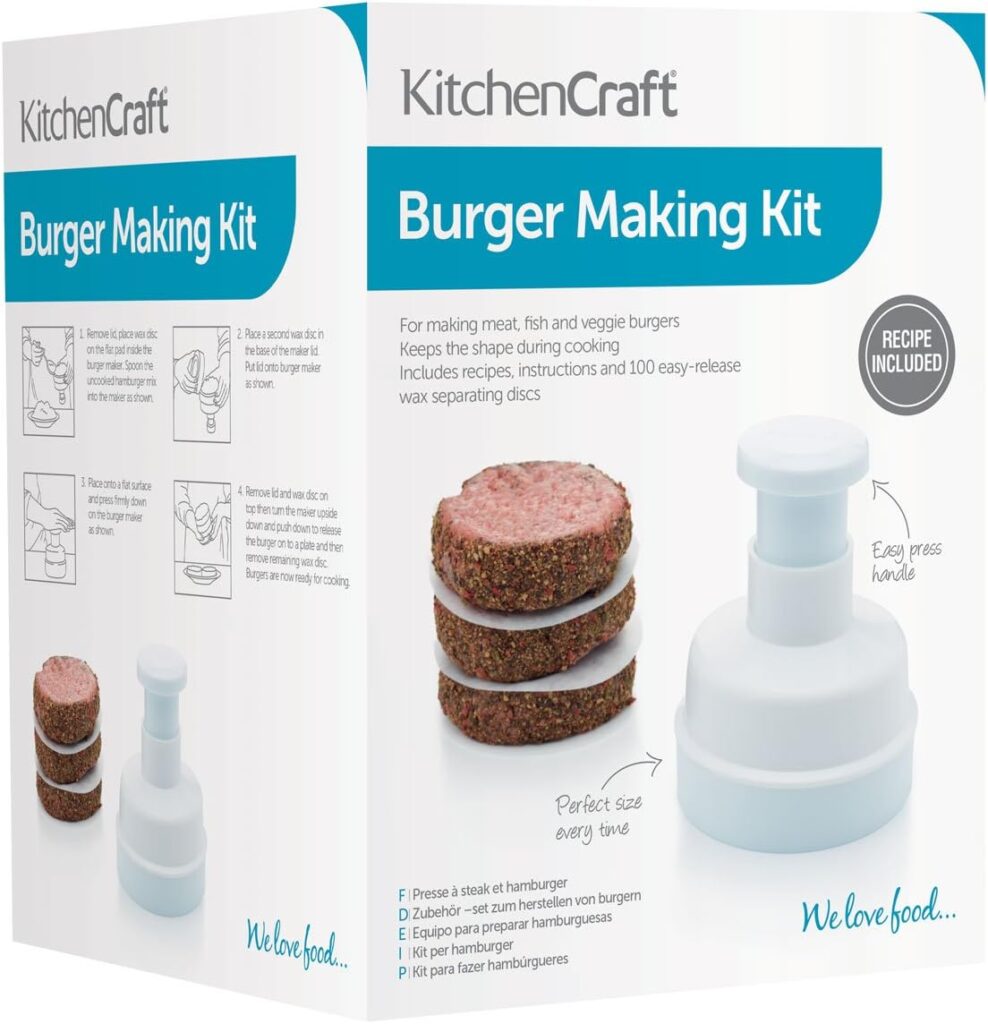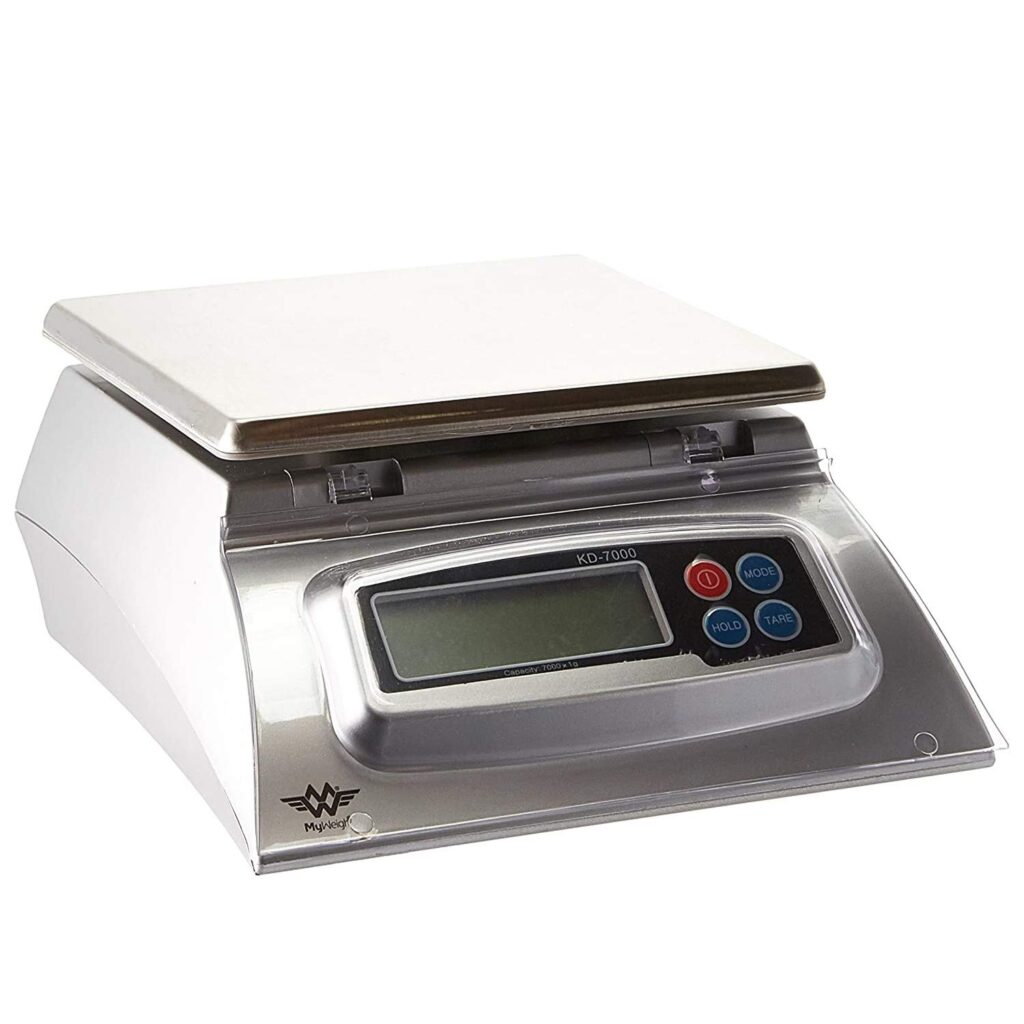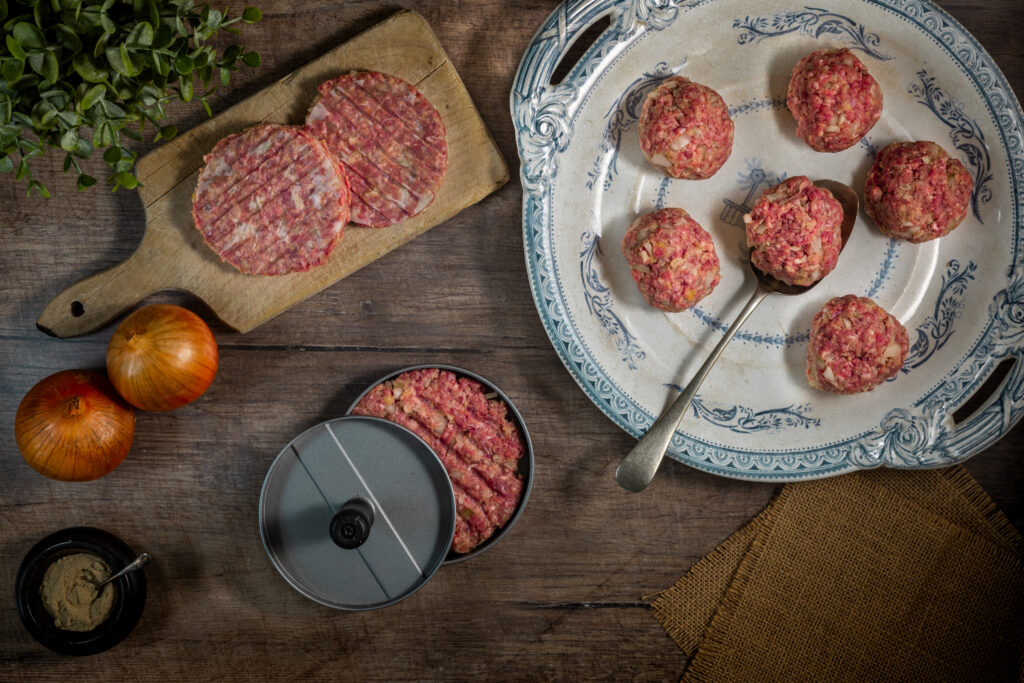
Everyone loves a juicy burger don’t they? But did you know just how easy they are to make at home from scratch?
Not only are they a budget-friendly option, but they also give you full control over what goes into your burger. Say goodbye to mystery ingredients and hello to the wholesome goodness of fresh minced beef with no additives except for some finely chopped onion and seasoned with a hint of pepper.
Make it your own
You can also add any flavourings you like to get a restaurant quality burger for a fraction of the cost and exactly to your taste.
It’s important to know exactly what we’re eating, and with homemade burgers, you can use quality ingredients to suit your budget and customise the flavours just the way you like them.
Plus, it’s a fun activity for the whole family to get involved in!
Products we recommend
Affiliate Links (opens in new tab) – if you make a purchase via this link then we will earn a little commission at absolutely no extra cost to you – and we will be very grateful for your support!
Ingredients
Budget Burger Recipe
- 375g minced beef – (20% fat content)
- 1 small onion – very finely chopped
- 30g fresh breadcrumbs
- 1/4 teaspoon ground white pepper
- 1 egg – beaten
Steak Burger Recipe
- 375g minced beef steak- (5% fat content)
- 1 small onion – very finely chopped
- 30g fresh breadcrumbs
- 1/4 teaspoon ground white pepper
- 1 egg – beaten
- 50g beef suet
How to make juicy handmade beef burgers
- Place the minced beef into a large mixing bowl.
- Add the finely chopped onion, breadcrumbs, egg and white pepper and the suet if making from 5% steak mince
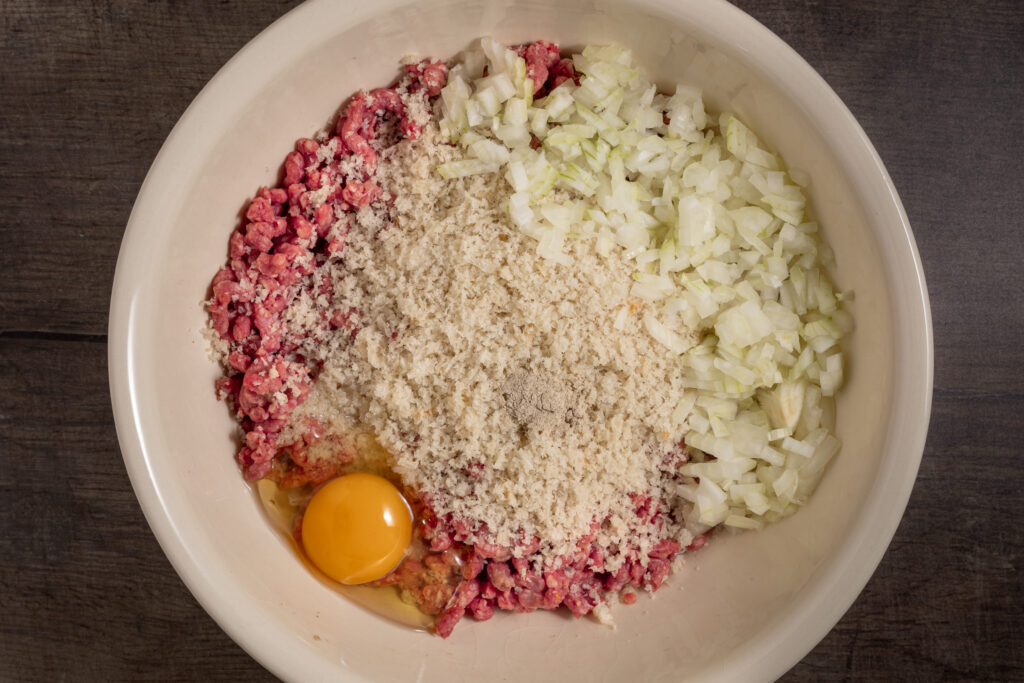
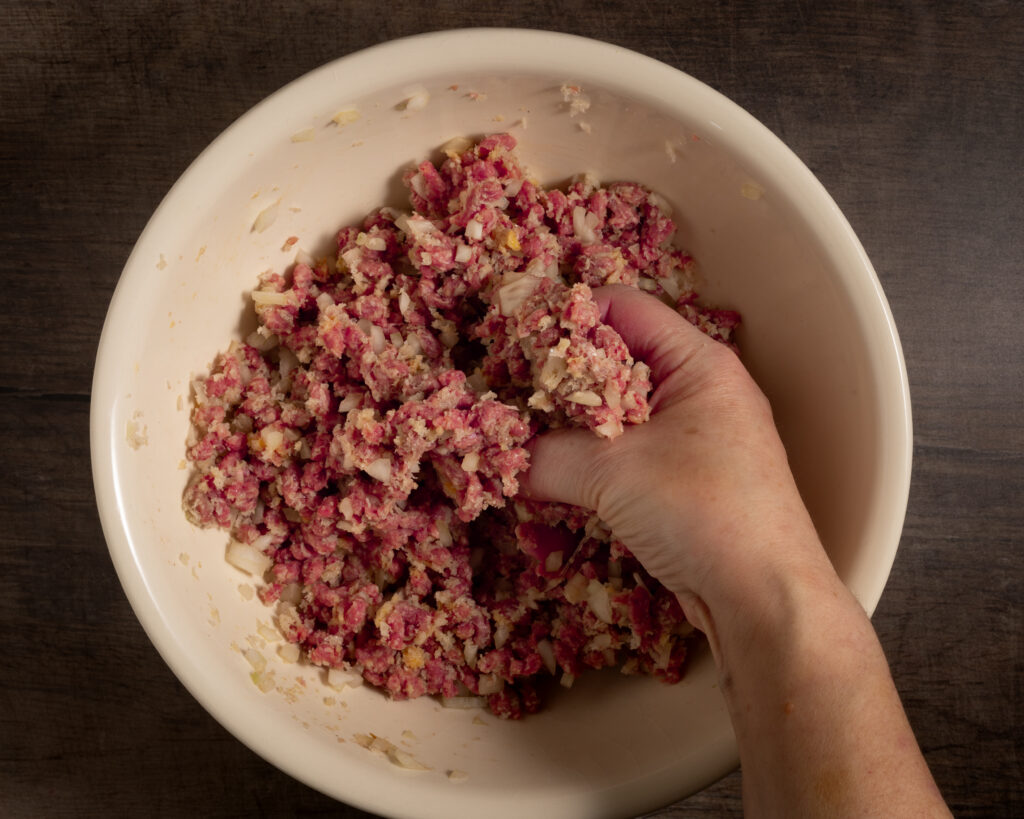
- Mix everything together very thoroughly then put the bowl in the fridge to cool.
- In the meantime, get your burger press and waxed discs ready.
- When cooled, weigh the meat mixture into portions – the actual size depends on your burger press but we use 100g for thick quarter pounder burgers (ideal for putting in our Super Soft White Bread Rolls), 75g for everyday burgers or 50g for thin burgers – alternatively, weigh your meat mixture and divide by how many burgers you want to make. This will give you your portion size.
- Take your burger press and place a wax disc in one side.
- Put a portion of the meat onto the wax disc and cover with another wax disc.
- Put the press together and press down firmly to form your burger.
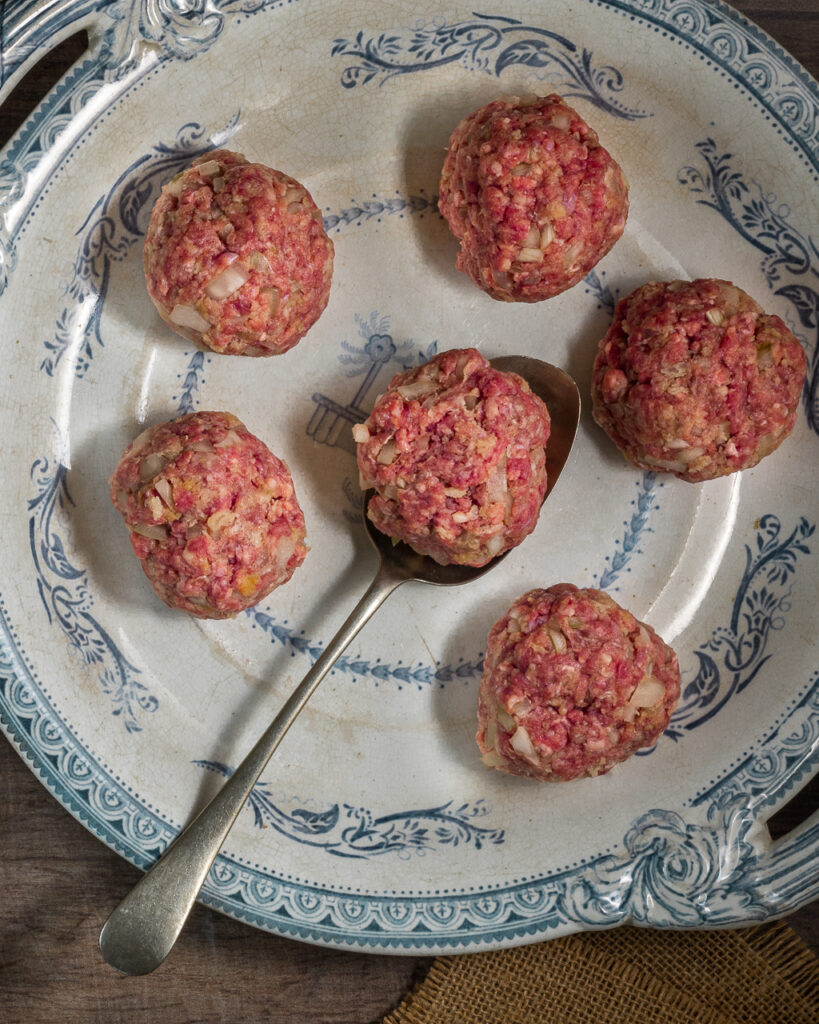
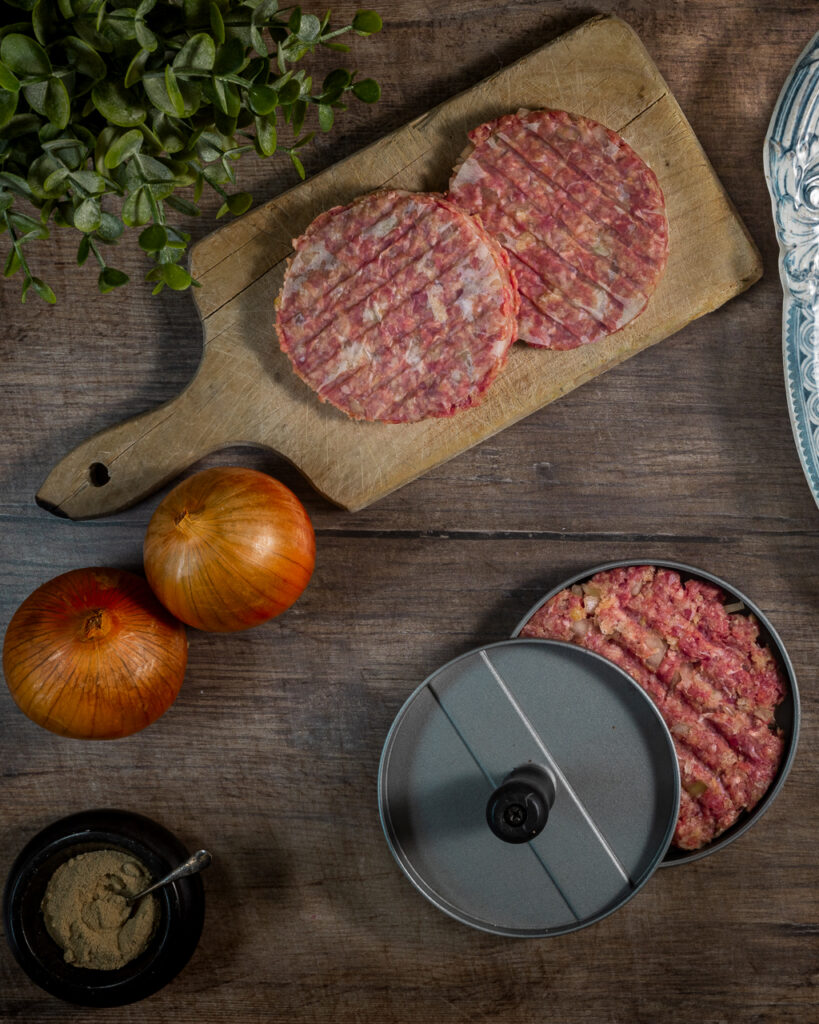
- Keep doing this until all of the burgers are made then put them onto a tray and either pop them in the fridge for half an hour before cooking or place them in the freezer. When they are frozen, take them off the tray and put them into a freezer bag.
- When you are ready to cook your burgers, take them out of the fridge or if they are frozen, leave them to defrost completely before cooking them.
- Heat up a large frying pan.
- Remove the wax discs from one side of a burgers and sprinkle with salt to taste.
- Place the burgers in the frying pan so that the remaining wax discs is facing up.
- Remove the remaining wax discs and sprinkle this surface with salt again to taste.
- Let the burgers cook for 3-4 minutes then carefully check to see that they have browned nicely before flipping them over to cook on the other side.
- Check the internal temperature with a probe thermometer if you have one – these are brilliant to have in the kitchen as it allows you to be in complete control of cooking times without ever having raw middles or dry burgers again! In fact I would say they were essential if you were cooking on a barbeque.
- Now they are ready to pop into a soft bun with as many extras as you like – we like lettuce, tomato, onion rings, crispy bacon and of course some lovely melting cheese!
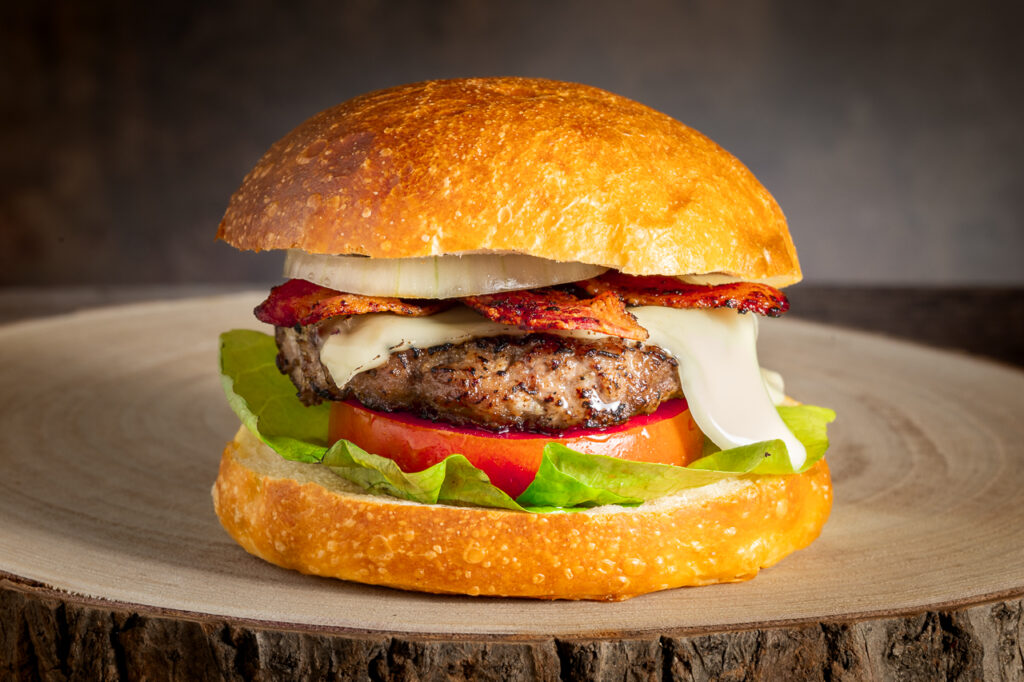
Meat cooking temperatures
Using a digital thermometer to monitor the internal temperature of food is a great investment. Here is a guide to meat temperatures if you decide to invest in one – and I definitely encourage you to do so if you can!
Like chicken, cooking burgers and minced meat to a certain temperature is important for food safety. Beef burger patties should be cooked to a minimum of 71°C to be safe to consume.
Cooking medium rare burgers at home isn’t usually recommended because minced meat can contain harmful bacteria, so to create perfect burgers cook to the safe burger temperature of at least 71°C.
We always cook our burgers to 75°C for perfect juicy tenderness
Meat Cooking Temperatures
Poultry 74 °C
Fish 60 °C
Beef, Lamb, Veal & Duck (Rare) 52 °C
Beef, Lamb, Veal & Duck (Medium) 60 °C
Beef, Lamb, Veal & Duck (Well Done) 71 °C
Pork Roasts, Steaks & Chops (Medium) 63 °C
Pork Roasts, Steaks & Chops (Well Done) 71 °C
Sausages 71 °C
Beef Burgers 75 °C
Slow Cooked Meat (Brisket, Pork/Lamb Shoulder, Ribs)
93-95 °C
